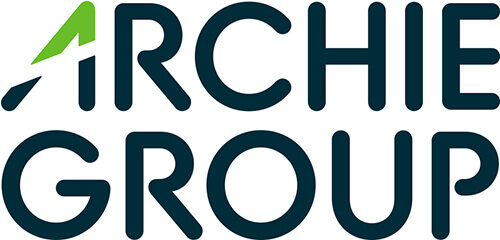An Investor’s Pulse on Healthcare
Anyone interested in healthcare may have found themselves in San Francisco in January, where the 41st annual JP Morgan Healthcare Conference tool place. One of the 8,000 participants on the ground was Greg McKee, Managing Partner at Bonaventure Equity, a life sciences venture capital firm. Greg is an active investor in the digital health and medical technology space. He’s also a YPO member and served on the executive committee of YPO's Deal Network, where he drove connections between CEOs worldwide on deal flow. We caught up with Greg post-conference about healthcare trends and innovations like telemedicine, digital therapies, AI and cannabis.
Archie: The JP Morgan Healthcare Conference is like CES for life sciences investors. What do you like about this event?
Greg: It’s the largest and most influential healthcare investment symposium, attracting the top executives and most influential decision makers from the biopharmaceutical, medical device and healthcare sectors. Whereas CES can be consumer-focused, this conference is more about raising and building capital formation from investment and strategic partners. It provides a platform for companies to showcase their latest products and research developments, as well as an opportunity for investors to gain insights into the industry trends, network with industry leaders and potentially identify investment opportunities.
Archie: Has the healthcare sector been able to avoid recent volatility and the downturn in the overall market?
Greg: The healthcare sector is not immune to the impact of market corrections and changes in investor sentiment. In recent years, there has been a rapid increase in investment in the healthcare sector, driven by advancements in technology, growing consumer demand for healthcare services and an aging population. This has led to a significant increase in valuations for many healthcare companies, particularly in the technology-driven areas such as telemedicine, artificial intelligence and digital therapeutics. However, there are signs that the market is becoming more discerning with investor caution due to uncertainty surrounding global economic conditions, regulatory changes and a general slowdown in growth in some areas of the market.
Archie: How have themes and agendas changed over the past decade at this event with the new technologies driving innovation and e-health capabilities?
Greg: The focus has always been on innovation in the biotech and pharmaceutical spaces, and technology and e-health have become increasingly prominent. In recent years, there has been a growing emphasis on digital health, personalized medicine and the use of technology to improve patient outcomes and reduce healthcare costs. The conference this year placed more attention on the intersection of healthcare and technology, with a focus on areas such as data analytics, telemedicine and AI-powered solutions. These shifts reflect the increasing role that technology and data are playing in shaping the future of healthcare.
Archie: Can you give us examples of this intersection of consumer technology, healthcare expertise and AI?
Greg: Digital therapeutics, which are software-based solutions that treat disease, are gaining recognition as a potential alternative or complement to traditional pharmaceuticals. This includes applications such as mobile apps, virtual reality and wearable devices. Precision medicine, which involves using patient-specific information to tailor treatments, has also gained significant traction. This has been driven by advances in genomics and data analytics that allow healthcare providers to better understand causes of disease and develop targeted treatments. Artificial Intelligence is being increasingly used to improve patient outcome, reduce costs and streamline processes. AI is being used in a variety of applications such as drug discovery, predictive analytics and medical imaging analysis.
Archie: Has Covid’s impact brought any new innovations to the forefront?
Greg: Telemedicine has been very visible, as has the need to provide access to care in remote and underserved areas, which have accelerated the shift towards virtual care. There has been a growing trend in the intersection of healthcare and consumer technology, with companies developing products that combine the convenience and accessibility of consumer technology with the medical expertise of the healthcare industry.
Archie: How about an example of any emerging, non-traditional areas of healthcare?
Greg: There is growing evidence to suggest that psychedelics and cannabinoids, when used under the supervision of medical professionals, have the potential to offer new and innovative solutions for the treatment of serious medical conditions, such as depression, anxiety, PTSD and addiction. There was a decent presence of cannabinoid- and psychedelic-focused companies at this year’s conference with companies such as Atais, Cannaformatis, Filament and many others, including investors and strategics contemplating a move into the space.
Archie: How would you advise healthcare entrepreneurs looking to raise capital or strike a deal?
Greg: Investors are typically looking for companies addressing major healthcare challenges, such as improving patient outcomes, reducing healthcare costs or innovative solutions that address unmet medical needs. These need to be supported by evidence of progress and validation such as through clinical trials or partnerships with established companies. Having a clear and sustainable business model with a plan for revenue generation is key. But all of this drives us back to perhaps the first thing you need to look at for delivering each of these points, which is talent—a strong leadership team that has the experience, expertise and passion to drive the company and concept forward.

